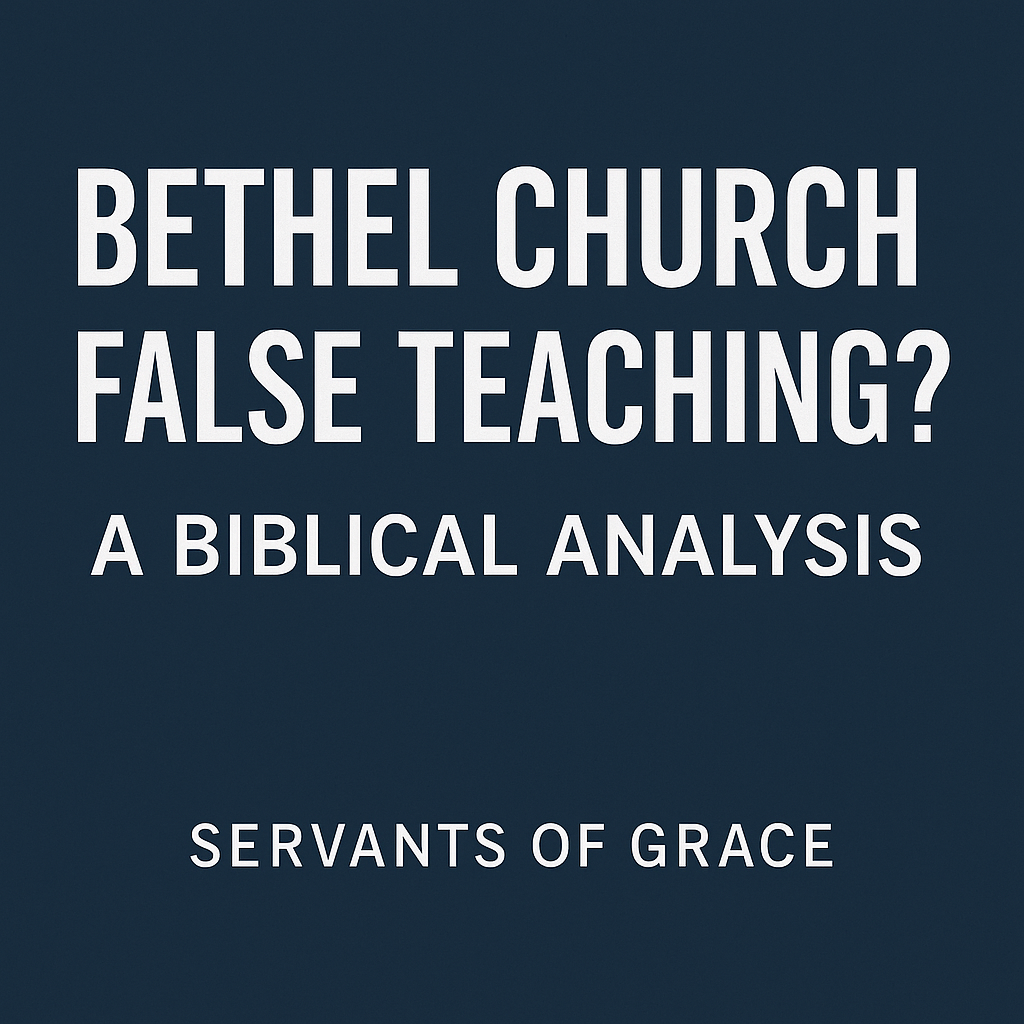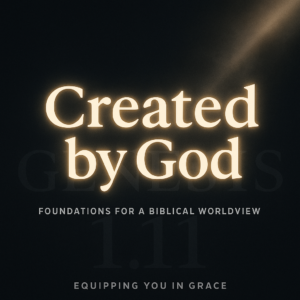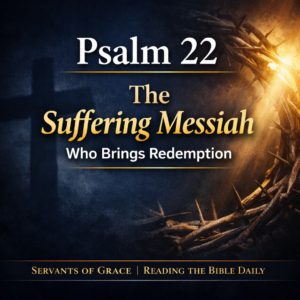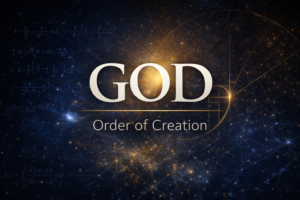⏱️ Estimated Reading Time: 8 min read
Bethel Church: Is it Biblical? A Warning to Christians
By Dave Jenkins
Short Answer: No. While Bethel Church uses Christian language and emphasizes worship and miracles, its teachings and practices depart significantly from biblical doctrine. Bethel promotes extra-biblical revelation, modern-day apostles and prophets, Word of Faith theology, and spiritual practices not rooted in Scripture.
Introduction
Bethel Church in Redding, California, led by Bill Johnson, is one of the most influential charismatic churches in the world, impacting the worship practices, theological beliefs, and spiritual expectations of countless churches and believers around the globe. Through its worship ministry (Bethel Music), supernatural school (BSSM), and global platform, Bethel’s teachings have reached millions (and continue to do so). But behind the emotional appeal lies a theology that distorts the gospel, undermines the sufficiency of Scripture, and leads many into confusion.
What Bethel Church Actually Teaches and Practices
Quick Evidence Summary:
- Bill Johnson promotes extra-biblical revelation over Scripture (Dreaming with God, p. 49).
- Bethel teaches Jesus temporarily ceased to be God (When Heaven Invades Earth, p. 79).
- They affirm modern-day apostles and prophets (NAR theology).
- Grave soaking practices documented (Christianity Today, 2016).
- Healing guaranteed theology (The Supernatural Power of a Transformed Mind, p. 127).
Extra-biblical Revelation: “It’s difficult to get the same fruit as the early Church when we value a book they didn’t have more than the Holy Spirit they did have.”
— Bill Johnson, Dreaming with God, p. 49
Jesus Ceased to Be God: “Jesus is eternally God, but He laid His divinity aside as He walked the earth.”
— Bill Johnson, When Heaven Invades Earth, p. 79
Modern Apostles and Prophets: Bethel affirms the restoration of apostles and prophets as governing offices in the Church—core to the NAR (New Apostolic Reformation).
Grave Soaking / Impartation: BSSM students have been documented laying on graves of deceased Christians to receive an “impartation” of their anointing—a practice widely referred to as “grave soaking.” A 2016 article by Christianity Today reports that Bethel leaders—including Beni Johnson—have practiced “grave sucking” at the graves of revivalist preachers as a means to absorb spiritual power. Although Bethel leadership has publicly distanced themselves from the practice, the behavior was neither denounced clearly nor prevented at the time.
Guaranteed Healing: “There’s no disease Jesus wouldn’t have healed. There’s no affliction that’s from the Father. So we go after all of it.”
— Bill Johnson, The Supernatural Power of a Transformed Mind, p. 127
Biblical Support: What the Bible Teaches
- Sufficiency of Scripture: “All Scripture is breathed out by God and profitable… that the man of God may be complete, equipped for every good work.” — 2 Timothy 3:16–17
- The Deity of Christ: “For in him the whole fullness of deity dwells bodily.” — Colossians 2:9
- No New Apostles: The foundation of the Church was laid by the apostles and prophets (Ephesians 2:20). Their authority is preserved in Scripture—not passed on.
- Biblical Healing: Healing may happen (James 5:14–16), but it is not guaranteed in this life (2 Corinthians 12:7–9). The Apostle Paul, for example, was not healed of his thorn in the flesh despite earnest prayer, and Timothy was advised to take a little wine for his frequent ailments (1 Timothy 5:23), showing that even faithful believers may endure ongoing physical weakness for God’s greater purposes (i.e. their growth in becoming more like Christ).
Theological Clarity
Historical Insight
The errors promoted by Bethel Church are not new. For instance:
- Arianism (4th-century heresy) taught that Jesus was a created being, not eternally God. This was decisively rejected at the Council of Nicaea (AD 325), affirming that Jesus is eternally and fully God.
- Nestorianism (5th-century heresy) suggested that Christ had two separate persons—one human, one divine—rather than one person with two natures. This was condemned at the Council of Chalcedon (AD 451), which upheld Christ’s full humanity and deity united perfectly in one person.
- Montanism (2nd-century heresy) was a movement emphasizing personal prophetic revelations that claimed equal authority to Scripture. Early church fathers, like Tertullian and Irenaeus, rejected Montanism, affirming the closed canon of Scripture as the final and authoritative Word from God.
Systematic Theology Clarification
- Bibliology: Scripture is God’s sufficient and authoritative revelation (2 Timothy 3:16–17), not secondary to subjective experiences or personal revelation.
- Christology: Christ is fully and eternally God, who never ceased to be divine (Colossians 2:9).
- Pneumatology: The Holy Spirit’s primary work is to glorify Christ and illuminate Scripture, not to provide new revelation that contradicts the written Word (John 16:13–14).
Bethel promotes a redefinition of core doctrines:
A sub-biblical view of Scripture, elevating modern revelation over the written Word:
“It’s difficult to get the same fruit as the early Church when we value a book they didn’t have more than the Holy Spirit they did have.”
— Bill Johnson, Dreaming with God, p. 49
A dangerous Christology, suggesting Jesus functioned only as a Spirit-filled man:
“Jesus is eternally God, but He laid His divinity aside as He walked the earth.”
— Bill Johnson, When Heaven Invades Earth, p. 79
A man-centered theology, focused on signs and experiences rather than the gospel of Christ crucified and risen: This is evidenced through the core curriculum at BSSM, where students are trained to perform signs and wonders rather than grounded in biblical theology. As documented in Defining Deception by Costi Hinn and Anthony Wood (pp. 56–58), Bethel’s approach prioritizes “activation” exercises over expository Bible teaching.
Additionally, sermons from Bill Johnson often state, “Jesus didn’t come to show us what God could do, but what man could do in right relationship with God,” diminishing Christ’s unique role as the God-Man (cf. sermon: “The Power of the Testimony,” Bethel Church, 2011).
These are not secondary issues. These doctrinal errors impact the gospel itself, lead to confusion in discipleship, and threaten the health and integrity of local churches. When core truths about Scripture, Christ, and salvation are distorted, the result is spiritual harm to individuals and entire congregations. They strike at the heart of the gospel, the character of God, and the authority of His Word.
How Christians Should Respond to Bethel Church
- Avoid Bethel’s Teaching and Resources: This includes books, “activations,” and even worship music that subtly introduces faulty theology.
- Test Every Teaching Against Scripture: Emotional experiences must submit to the authority of God’s Word (Acts 17:11; 1 Thess. 5:21).
- Worship in Spirit and Truth: True worship exalts Christ, not spectacle (John 4:24).
- Warn Others in Love: We must speak truth graciously and clearly, especially to those entangled in deceptive movements (Romans 16:17).
Conclusion
Recommended Resources
- Defining Deception by Costi Hinn and Anthony Wood
- God, Greed, and the (Prosperity) Gospel by Costi Hinn
- “Contending for the Word“ podcast episodes on NAR and Bethel theology Contending for the Word with Dave Jenkins
- For more great resource please check out our Scripture for All of Life series.
- Check out this helpful article by Holly Pivec.
- Check out this conversation Dave had with Holly Pivec.
- Learn more about biblical discernment here.
- Listen as Dave talks with Costi Hinn about his book Defining Deception he wrote with Anthony Wood.
Reflection and Discussion Questions
- How can believers practically test teachings against Scripture in their daily lives?
- Why is understanding Christ’s true deity and humanity essential for authentic Christian worship?
- How can we compassionately warn friends or family involved with Bethel or similar movements?
💬 Got Questions?
If you have questions about Bethel Church, false teaching, or anything related to this article, click here to contact us through Servants of Grace. We’d love to help you find clarity, point you to the truth, and walk with you in God’s Word.
Bethel Church presents itself as Spirit-filled and Jesus-centered, but Christians must look beyond appearances and examine doctrine. If you or someone you know is involved with Bethel or similar movements, take time to compare their teaching with the Bible. Seek out a biblically faithful church, study sound doctrine, and help others do the same. Share this truth with compassion—and courage. Bethel’s teachings consistently contradict God’s Word. The danger isn’t just in what they say—it’s in what they assume: that Scripture isn’t enough, that experience is a higher authority, and that Jesus is a model of power rather than the Savior who bore our sin in our place, for our sin, rose, and is totally and completely sufficient.
False teaching is rarely obvious. That’s why we must return to the Word, cling to sound doctrine, and lovingly help others do the same.
“Contend for the faith that was once for all delivered to the saints.” — Jude 3
📝 FAQ Entries:
Q1: What does Bethel Church teach that is unbiblical?
A1: Bethel Church promotes extra-biblical revelation, denies the full deity of Christ during His earthly ministry, affirms modern apostles and prophets, and teaches guaranteed healing—all of which contradict biblical doctrine.
Q2: Is Bethel Church part of the New Apostolic Reformation?
A2: Yes. Bethel affirms the restoration of modern-day apostles and prophets—a core belief of the NAR—and trains students in this framework through BSSM.
Q3: How should Christians respond to Bethel Church’s teachings?
A3: Christians should avoid Bethel’s resources, test everything by Scripture, worship biblically, and gently warn others caught in doctrinal error.
Dave Jenkins is happily married to his wife, Sarah, and lives in beautiful Southern Oregon. He is a writer, editor, and speaker who loves Christ, His people, the Church, and sound theology.
Dave serves as the Executive Director of Servants of Grace Ministries and the Executive Editor of Theology for Life Magazine. He is the Host and Producer of the Equipping You in Grace Podcast and a contributor to and producer of Contending for the Word.
He is the author of The Word Explored: The Problem of Biblical Illiteracy and What To Do About It (House to House, 2021), The Word Matters: Defending Biblical Authority Against the Spirit of the Age (G3 Press, 2022), and Contentment: The Journey of a Lifetime (Theology for Life, 2024).
You can connect with Dave on Facebook, X (Twitter), Instagram, YouTube, or subscribe to his newsletter.
When he is not engaged in ministry work, Dave enjoys spending time with his wife, going to movies, sharing a meal at a favorite restaurant, or playing a round of golf with friends. He is also a voracious reader, particularly of Reformed theology and the Puritans, and is often found working through a stack of new books from a wide range of Christian publishers.
Dave earned his M.A.R. and M.Div. from Liberty Baptist Theological Seminary.




